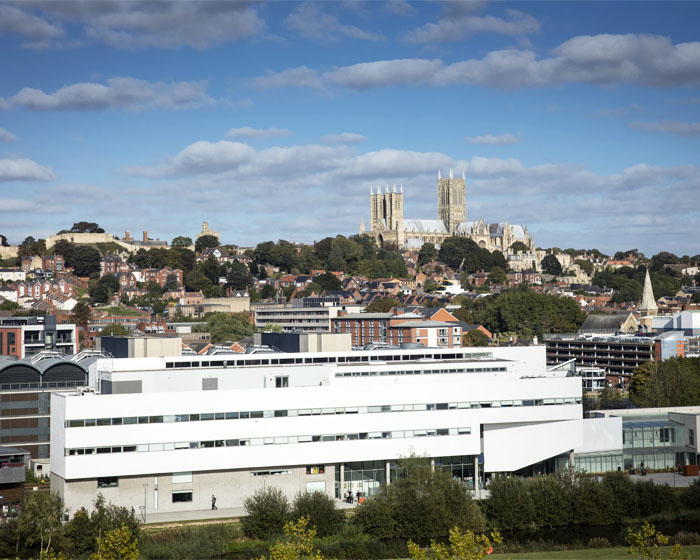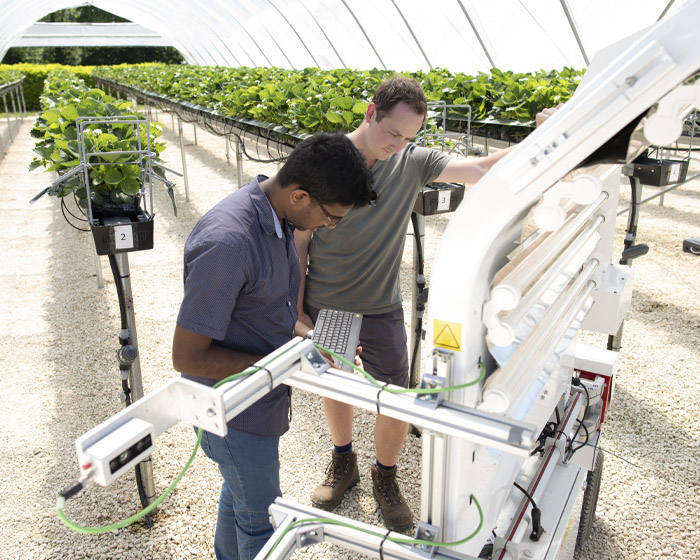/prod01/university-of-lincoln-cdn-pxl/media/responsive2017/abouttheuniversity/Reginal,banner2.jpg )
Strategic Plan
Civic and Regional Engagement
Our Civic Responsibilities
The regional strategy objective is to ensure the University meets its civic responsibilities and commitment to making a real difference to people’s lives, increasing opportunities, and supporting the region’s prosperity agenda. The strategy aims to align as appropriate:

We aim to align with:
Regional development priorities.

We aim to align with:
Government policy priorities (e.g. Levelling Up and Towns Fund) and national grand challenges (e.g. clean growth, decarbonisation, and net zero).

We aim to align with:
University research and knowledge exchange (RKE) and industry engagement priorities.

We aim to align with:
University education and development provision and those areas and fields in which the University is already heavily engaged with industry and local authorities (e.g. engineering, energy, defence and security, agri-tech, food processing, health and wellbeing). Together these activities can deliver new and inclusive opportunities for the region.
Being for and of Greater Lincolnshire gives the University’s approach its distinctive character. Our strengths have grown round the assets of the region. We have developed a range of initiatives and research expertise based on the need to address significant inequalities across the geography.
Key to the success of the strategy are coherence, focus, and the principle of reinforcing success in order to maximise the synergy of the University’s efforts across a broad spectrum of activity. It is also important to continue to horizon scan and remain agile as external priorities and policies evolve or change.
Regional Priorities
Sectors in which the region has a competitive advantage and offer real growth opportunities include agri-food, manufacturing, energy, health and care, ports and logistics, defence and security, and visitor economy.
From these sectors, the Greater Lincolnshire Local Enterprise Partnership (GLLEP) has identified four key sectors which present game-changing, high-potential opportunities for growth, investment, and collaboration on a region-wide scale: the Humber Freeport (“transforming the Humber ports into one of the most smart, clean, and efficient port clusters in the world”), UK Food Valley (“championing automation and resource efficiency and reducing the UK’s reliance on food imports”), Green Energy (“home to the world’s largest wind farm the region will capitalise on its clean growth assets by acting as a test-bed for technologies in clean energy, storage, and distribution”), and Defence and Security (“creating a cluster of innovation-focused defence and security companies to ensure Greater Lincolnshire is the first choice location for defence-related industries”).
Read More About 'Regional Priorities'
The Freeport runs along the Humber encompassing N and NE Lincs, including Scunthorpe and Grimsby; the Food Valley north to south from Grimsby (fish and protein) through Holbeach (National Centre for Food Manufacturing (NCFM)) to Boston; Green Energy focused along the Humber and east coast; and Defence and Security clustered around Lincoln and the RAF bases across Greater Lincolnshire.
Supporting the growth of the burgeoning creative industries sector, the University is supporting a wide range of initiatives across the region, which build capacity and drive the skills agenda through economic inclusion activity and business support (e.g. Barbican Creative Hub and Grimsby Creates).
Alongside these regional advantages, partners have identified some of the barriers constraining opportunity. The University’s Regional Inequality Commission has identified the following factors as contributing to inequality: health and wellbeing; community, belonging, and recovery; education, skills, and the labour market; innovation, investment, and ambition; place, culture, and connectivity. The University already undertakes significant activities to address issues in these areas of concern; the regional strategy will draw these activities together to increase connections across the University and beyond, so its work has maximum effect.
Government Policy Priorities
The Government’s Levelling Up Agenda and Greater Lincolnshire Town Fund deals focus on Lincoln, Scunthorpe, Grimsby, Connected Coast (Mablethorpe and Skegness), and Boston.
On the Lincolnshire border, Newark also secured a Town Fund deal. The University is a member of all these Town Fund Boards, which are seeking to address deprivation, lack of opportunity and low aspiration, and access to high skill, high value, better paid jobs.
Read More About 'Government Policy Priorities'
Two of the first four Government Grand Challenges, Artificial Intelligence and Data (including a specific mission to improve health outcomes) and Clean Growth, align with the region’s key sectors and game changers and the University’s RKE Strategy (i.e. manufacturing and clean growth, green energy, health and social care, and defence and security).
Paralleling the increasing emphasis on energy independence is that of food independence and supply chain resilience, which align with the region’s development of the Food Valley, Freeport and logistics, and the University’s focus on agri-tech, net zero, and defence and security.
Key to success will be the University’s ability to work with regional partners to build long-term plans and programmes knitting together a fragmented funding and policy environment to achieve long-term effect. For example, within the Creative and Heritage sectors, the University is providing strategic and delivery support across several Towns Fund programmes, enhancing coherence, and leveraging funds.
University Research and Knowledge Exchange
The University’s Research and Knowledge Exchange Strategy identifies agri-food technology, defence, net zero, and rural health as priority clusters for its industrial research.
These areas align with the region’s development priorities (UK Food Valley, green energy, defence and security), Government levelling up, and grand challenge initiatives (e.g. addressing deprivation and poor health outcomes through Town Fund investment and use of AI and data, clean growth, and the Freeport), and the University’s education development and interventions (e.g. Academy Trust, LIoT, and NCFM).
Read More About 'University Research and Knowledge Exchange'
The University’s Industrial Engagement Strategy supports its civic and regional engagement ensuring research and teaching is relevant and effective.
The Lincolnshire Science and Innovation Park (LSIP) adjacent to the University’s Lincoln campus has and is attracting businesses keen to access the University’s academics, research and innovation facilities, and professional development capability. Many of these companies align with the University’s research priority clusters outlined above.
In addition, the University’s policy engagement capability has identified core opportunities to increase linkages between research findings and the development of policy interventions to achieve effect at the regional level.
University Education Provision
Beyond its undergraduate and postgraduate programmes, many of which were developed in conjunction with local and national employers (e.g. engineering and Siemens), the University has sought to reach out across the region to support the efforts of others and fill gaps.
This work encompasses traditional education and multiple forms of ‘learn while you earn’ provision working with companies and other organisational bodies.
Read More About 'University Education Provision'
The University led the bid to establish a Lincolnshire Institute of Technology (LIoT) working in partnership with Bakkavor and OAL Ltd and seven FE colleges: DN Colleges Group (Scunthorpe), The TEC Partnership (Grimsby), Lincoln College, Lincoln University Technical College, Bishop Burton College, Boston College, and Grantham College.
The Lincs IoT curriculum is aligned to the GLLEP's priority themes of business growth and skills development in agri-food, food manufacturing, energy, digital, and engineering sharing the common theme of Industry 4.0.
The University’s NCFM is based in Holbeach at the centre of the region’s food processing industry and is collocated with the University Academy Holbeach providing education and strong employment pathways into the agri-food industry. NCFM’s LIoT facility and the University’s Centre of Excellence for Food Industry Innovation are located on the South Lincolnshire Food Enterprise Zone.
The University’s work to increase access and participation is a core activity to support the future regional economy in an area where progression rates from school to HE are very low and recruitment to graduate level employment a challenge. Our whole-institution approach is centred on seeking local solutions, as referenced in the Access and Participation Plan. Supporting strong graduate outcomes is a key element of improving social mobility and is underpinned by working with regional employers to increase demand for high-level skills.
Civic mission is at the heart of the University of Lincoln. We are here for the long term, working with regional partners towards a shared endeavour of regional health, wealth, and opportunity.
University of Lincoln Strategic Plan 2022-27
Coherence, Focus, and Reinforcing Success
There is a high level of coherence between the four areas (regional priorities, government priorities, university research and knowledge exchange, and university education provision) set out above in terms of subject matter and location. Four of the six Greater Lincolnshire Towns Fund locations have a LIoT facility (Lincoln, Scunthorpe, Grimsby, and Boston).
The Government focus on the Humber and NE Lincolnshire coast for green energy, clean growth (includes decarbonisation and carbon capture, use and storage (CCUS)) and net zero development encompasses Scunthorpe, Grimsby, and Mablethorpe and aligns with the University’s RKE and education engagement. The Humber Freeport also encompasses Scunthorpe, Grimsby, Clean Growth, Town Fund, and LIoT.
Read More About 'Coherence, Focus, and Reinforcing Success'
The UK Food Valley development aligns with the University’s RKE and education provision (in Lincoln, Holbeach – LIoT and University Academy Trust – and Grimsby). The RKE defence and security focus aligns with a regional game changer, the Government’s Defence and Security Industrial and Net Zero Strategies, AI and Data Grand Challenge and LSIP development. The challenges of rural health and social care outcomes align with RKE, Levelling Up, and a regional growth sector.
This alignment of government, regional, and university focus brings coherence to the effort and resource the University can bring to bear to make a regional difference. Reinforcing University success in education, levelling up, agri-food technology, defence and security, creative sector, net zero, and rural health in the key locations of Lincoln, Humber South Bank, Connected Coast, and Boston/Holbeach will deliver maximum regional impact.
The University will seek better to understand where it can draw together its assets to have a positive effect on regional inequality over the long term. This means, alongside the focus on building regional opportunity through key sectors and clusters, we will also focus on social impact. We will combine our community engagement resources and capability and work with a significant breadth of third sector organisations with whom we collaborate to support opportunities, which will benefit individuals as well as sectors and organisations.
Discover More
You can download a PDF version of our Regional Engagement plan.